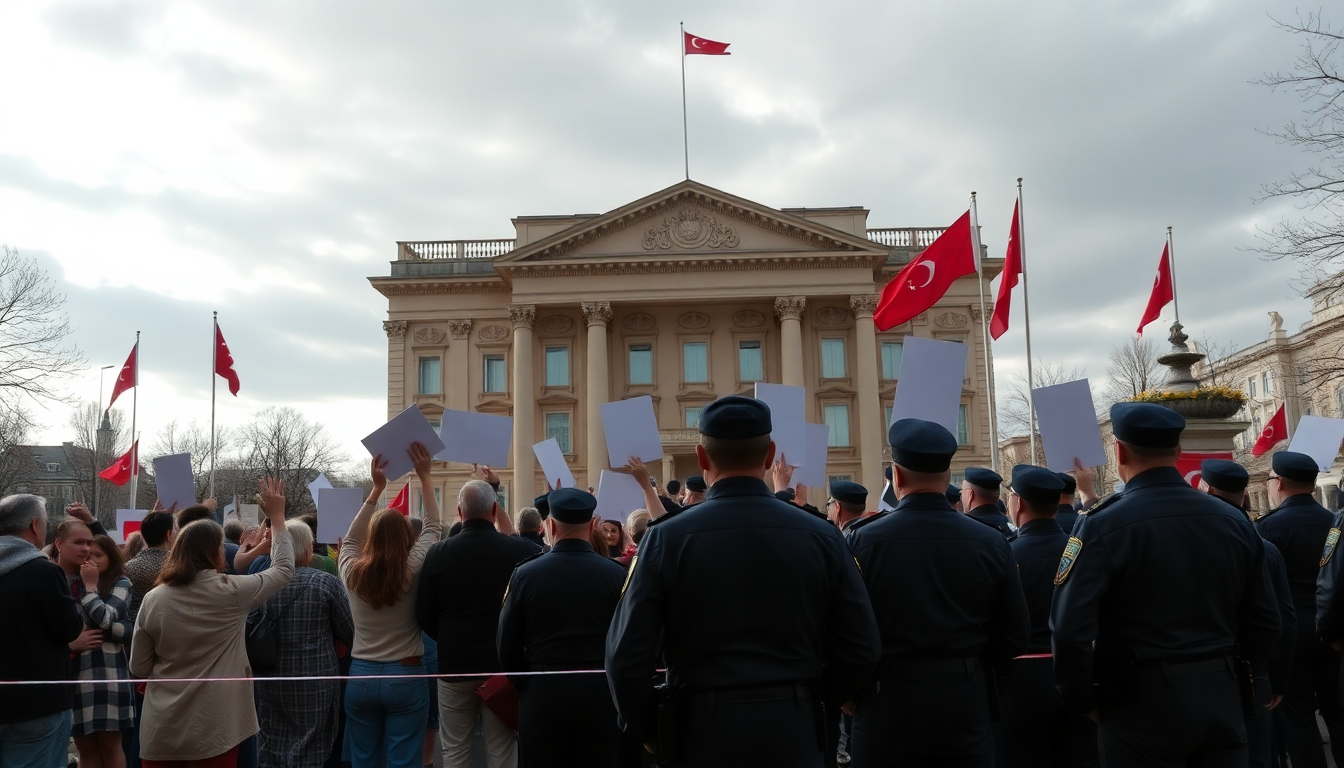The political scene in Turkey is heating up as three mayors from the main opposition party, the Republican People’s Party (CHP), were arrested early Saturday. This dramatic move comes just four months after Istanbul’s mayor, Ekrem İmamoğlu, was jailed, raising eyebrows about President Recep Tayyip Erdoğan’s strategy to stifle dissent and tighten his grip on power. The arrested mayors—Abdurrahman Tutdere from Adiyaman, Zeydan Karalar from Adana, and Muhittin Bocek from Antalya—are now caught up in investigations initiated by the public prosecutor’s office in Istanbul. What does this mean for the future of Turkish politics?<\/p>
Understanding the Context of the Arrests<\/h2>
To grasp the full implications of these arrests, it’s essential to consider the broader context. İmamoğlu, viewed as Erdoğan’s primary political rival, was sentenced to prison over corruption charges, igniting widespread protests throughout the nation. His jailing hasn’t just energized the opposition; it has also positioned him as a key contender for the 2028 presidential elections. The recent detentions of the mayors seem to be part of a systematic effort to dismantle the CHP’s influence ahead of these pivotal electoral battles. Can the opposition withstand this pressure?<\/p>
Additionally, the crackdown extends beyond these mayors. Other CHP officials, including the former mayor of Izmir and several local leaders, have also faced arrest, highlighting a broader assault on political dissent. State media suggests these actions are tied to an extensive investigation into allegations of fraud and tender-rigging, prompting serious concerns about the fairness of the legal processes at play. This wave of political maneuvers threatens not just individual careers but the very fabric of democracy in Turkey. How will this impact the average citizen?<\/p>
Reactions and Their Implications<\/h2>
The immediate fallout from these arrests has sparked outrage among opposition leaders and civil rights defenders, who argue that these actions reveal a government increasingly willing to adopt authoritarian tactics to maintain control. Expect protests as citizens voice their frustrations with the current political climate. The CHP, still reeling from İmamoğlu’s imprisonment, now faces an even rockier political landscape, but this could motivate their base to mobilize against perceived injustices. Will this galvanize support or sow further division?<\/p>
Moreover, the implications extend beyond Turkey’s borders. Erdoğan’s government is already under scrutiny from human rights organizations and Western nations, and the continued repression of political opposition could create friction with Turkey’s allies. The world is watching closely—could international pressure lead to sanctions or other diplomatic consequences for Turkey?<\/p>
A Look at the Future<\/h2>
As we look to the future, the political scene in Turkey is shrouded in uncertainty. The arrests of these mayors serve as a glaring reminder of the challenges opposition parties face in an increasingly hostile environment. The CHP’s ability to adapt and respond to these threats will be vital in determining its future as a political force. With the next presidential election looming, the opposition must not only defend against government oppression but also find ways to engage and mobilize voters effectively. Will they rise to the occasion?<\/p>
In summary, the recent arrests of Turkish mayors highlight a worrying trend of political repression in the country. As President Erdoğan tightens his hold on power, the resilience of opposition parties and the response from civil society will play crucial roles in shaping Turkey’s democratic future. The unfolding events are bound to attract keen attention both at home and abroad, carrying significant implications for governance and political freedoms in Turkey. Are we witnessing a turning point in Turkish democracy?<\/p>


